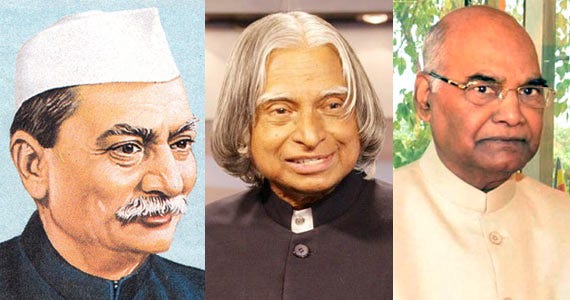
Image Source: 4.bp.blogspot.com
India follows the Westminster system (mostly followed by CommonWealth countries such as U.K, Canada, Australia and New Zealand) where it has a Prime Minister (Head of Government) as well as a President (Head of State).
While the President is called the first citizen of India, a lot of people tend to call and treat him as a rubber stamp office or a mere formality. Does he/she serve just a ceremonial role, as our former Prime Minister Jawaharlal Nehru said, “President neither reigns not governs”, and holds a position of “authority and dignity” more than anything else? Let’s discuss.
How is the President elected?
The President is elected indirectly by all the elected representatives of the country through proportional representation. The electoral college consists of all MPs and all MLAs of all the states and the UTs of Delhi and Puducherry, except the nominated members. The vote of an MP carries more weight than an MLA. The votes of MLAs also carry different weights based on the population of the state, hence proportional representation.
How powerful is the President anyway?
Executive powers: All the powers of the executive of the state shall be vested in the President. The council of ministers is supposed to advise the President and it is mandatory for the President to accept this advice. He/she can ask the council to reconsider the advice, but only once.
Dr. AJP Adbul Kalam Azad once returned an office of profit bill for reconsideration. When it was returned back to him without changes, he was bound to sign it.
Legislative powers: No bill can pass without the assent of the President. The President holds the power to dissolve the Lok Sabha if no majority is proven to form the government.
Judicial powers: The President appoints CJI, supreme court justices and high court justices. He/she can grant pardon, reprieve, respite and remission of punishment offered to a person convicted to a crime.
Military powers: The President is the supreme commander of Indian armed forces. Only the President has the power to declare a war on another country.
Diplomatic powers: All foreign diplomats are appointed by the President.
Emergency Powers: The President can proclaim three kinds of emergencies– National, State/President’s rule and Financial. Financial emergency has never been proclaimed in India yet.
Can you or I become the President of India?
For you to become the President of India, you should:
Be at least 35 years of age
Be a citizen of India
Satisfy the minimum qualifications of being a loksabha member
Not occupy an office of profit
Even if you have these qualifications, you need to be proposed by 50 electors and seconded by another 50 electors.
For how long can someone be a President?
A president is elected for a term of 5 years. However, the term can end if the President passes away, resigns or is impeached. In case the terms ends prematurely, the Vice President acts as the President*. In the absence of VP, the CJI acts as the President**.
An acting president can serve for a maximum of 6 months after which new elections must be held. A president can be impeached by the Parliament if and only if he/she violates the constitution.
*Varahagiri Venkata Giri was a VP who acted as the President.
**Mohammad Hidayatullah was a CJI who acted as the President.
The discussion above categorically shows that the President is not a rubber stamp office. He is an extremely important figure of the country and is known as the protector, preserver and defender of the constitution of India.
However, his powers have reduced significantly since the passage of the 76th amendment in 1976, which made it mandatory for him to accept the advice of the council of ministers. This amendment has never been reversed since then, for obvious reasons.



